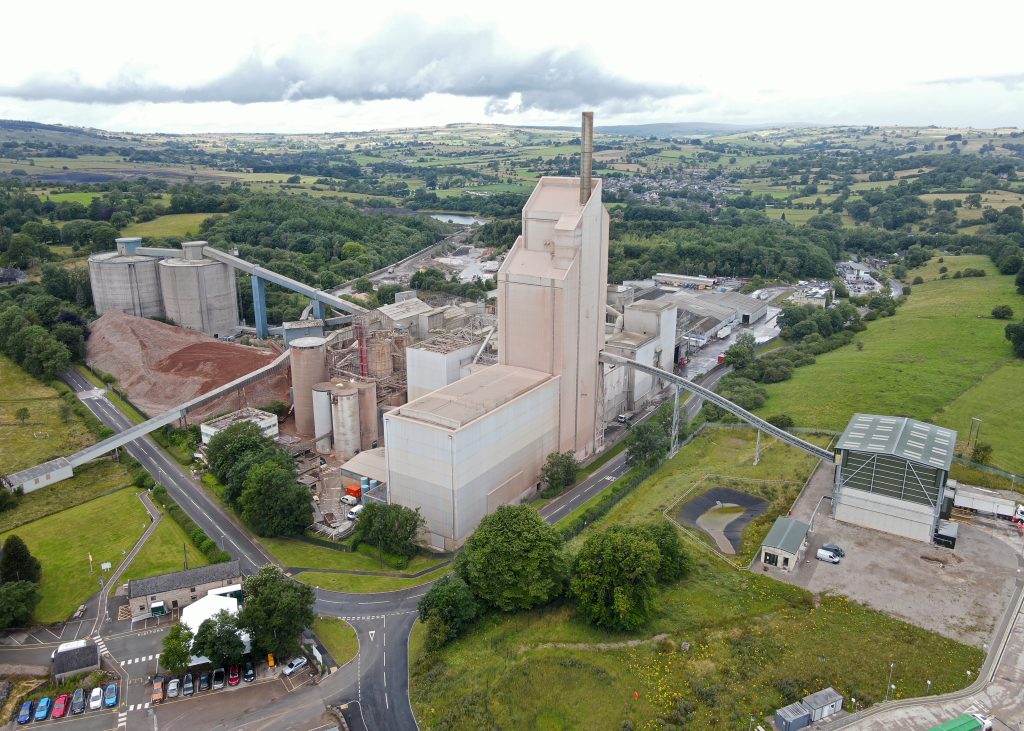News - Construction News
National Wealth Fund invests in major carbon capture project

Thousands of jobs could be created across Derbyshire, Staffordshire and the North West thanks to a £28.6 million National Wealth Fund investment in a major carbon capture project, the Chancellor has announced.
This funding for the flagship Peak Cluster project is the first step towards the development of a leading carbon capture pipeline between cement and lime companies in the Peak District which will store emissions deep below the Irish Sea – accelerating Britain’s transformation into a clean energy superpower.
The Peak Cluster project is the world’s largest cement decarbonisation project – preventing over 3 million tonnes of CO2 entering the atmosphere every year and providing a secure domestic supply of cement and lime products the British construction and manufacturing sectors rely on.
Backed by £31 million from private partners including Holcim, Tarmac, Breedon, SigmaRoc, Summit Energy Evolution and Progressive Energy together with the Morecambe Net Zero project could create and secure 13,000 jobs in the Midlands and North West.
This investment is the Government’s Plan for Change in action – boosting economic growth that puts more money in people’s pockets. Not only could it secure and create thousands of new jobs, but it also supports British industry to decarbonise and expand, helping to rebuild the country and supporting Britain’s transition to a clean energy superpower.
Chancellor of the Exchequer Rachel Reeves said: “The National Wealth Fund is a force for growth, investing £3 billion into the British economy and securing 12,500 jobs.
“We’re modernising the cement and lime industry, delivering vital carbon capture infrastructure and creating jobs across Derbyshire, Staffordshire and the North West to put more money into working people’s pockets.”
Energy Secretary Ed Miliband said: “This landmark investment will catalyse our carbon capture sector to deliver thousands of highly skilled jobs and growth across our industrial heartlands, as part of our Plan for Change.
“Workers in the North Sea and Britain’s manufacturing heartlands will drive forward the country’s industrial renewal, positioning them at the forefront of the UK’s clean energy transition.”
This will be the National Wealth Fund’s first investment in carbon capture since the Chancellor highlighted it as a priority in her new strategic direction for the Government’s principal investor back in March.
Cement and lime are two of the hardest industrial sectors to decarbonise due to the high levels of CO2 emissions generated in the manufacturing process which cannot be reduced through transitioning to low carbon fuels.
By investing alongside industry, supporting early development risk reduction and providing the critical financing for Peak Cluster through its development process, the National Wealth Fund will remove some of the barriers for private investment to further develop and construct the project.
Through its support for Peak Cluster, it is also building the market and stimulating large scale future investments as the project progresses, and facilitating Spirit Energy’s development of the UK’s largest CO2 store for which a carbon capture pipeline is essential.
The National Wealth Fund will commit at least £5.8 billion by 2030 in hydrogen, carbon capture, ports and supply chains, gigafactories and EV supply chains, and steel. This will help industries decarbonise and to accelerate Britain’s transformation into a clean energy superpower.
Image: Holcim
If you would like to read more stories like this, then please click here
Related Articles
More News
- How to Start 2026 in control
16 Jan 26
Six leadership moves for more profitable construction firms in 2026.
- Homes England boost for new homes
15 Jan 26
Homes England has agreed a £165 million financing for regional housebuilder Allison Homes.
- Homes England appoints Exec Director
14 Jan 26
Homes England has confirmed the appointment of John Reid as Executive Director for Technical Capacity






